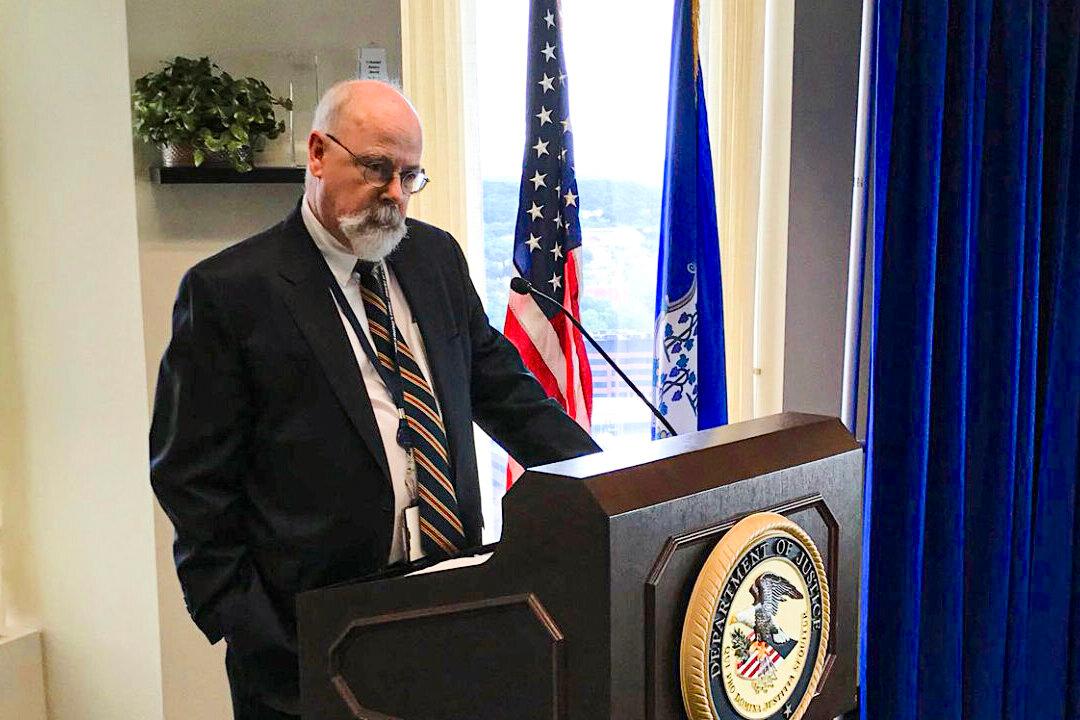
John Durham speaks at a conference in New Haven, Conn., on Sept. 20, 2018. Courtesy of the U.S. Attorney's Office for the District of Connecticut
The U.S. government’s criminal investigation into former Perkins Coie partner and Clinton campaign attorney Michael
Sussmann isn’t over yet.

Michael Sussmann


